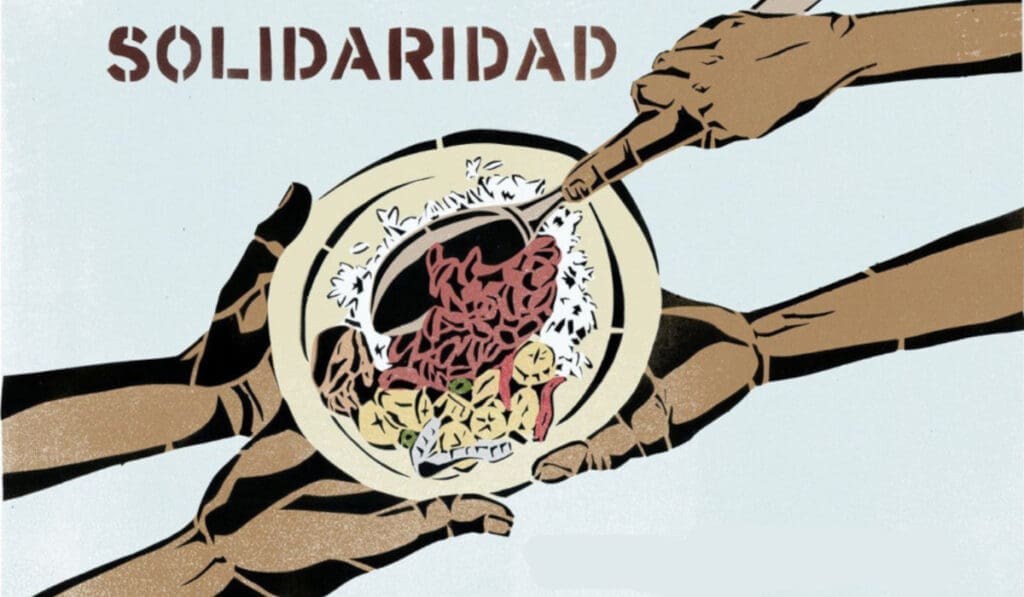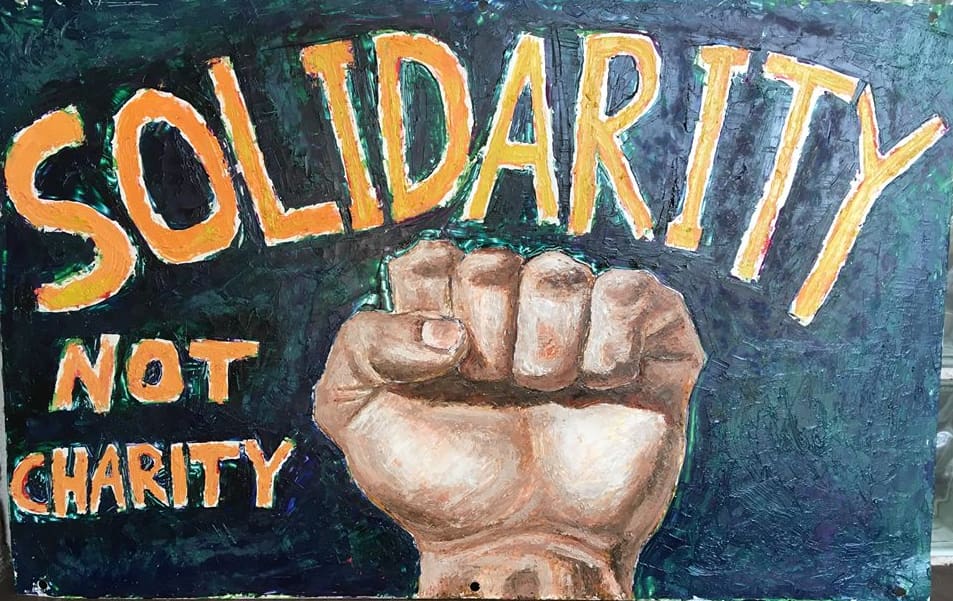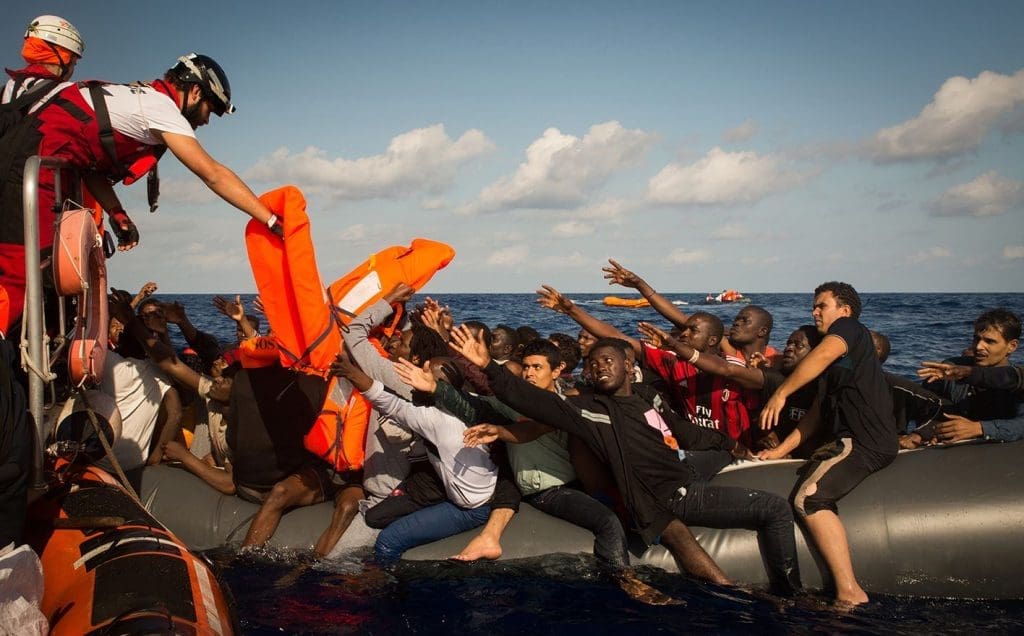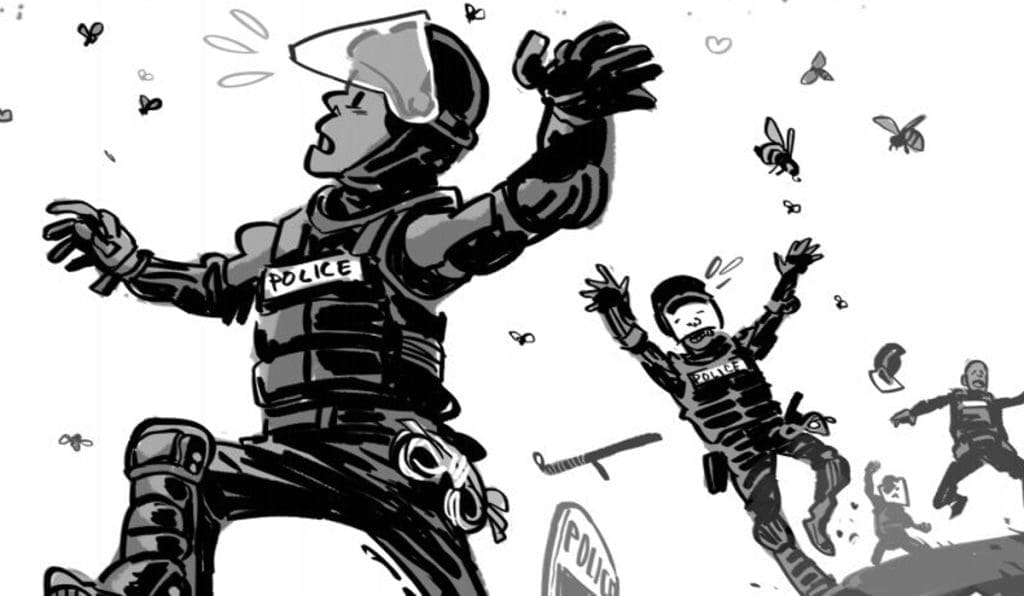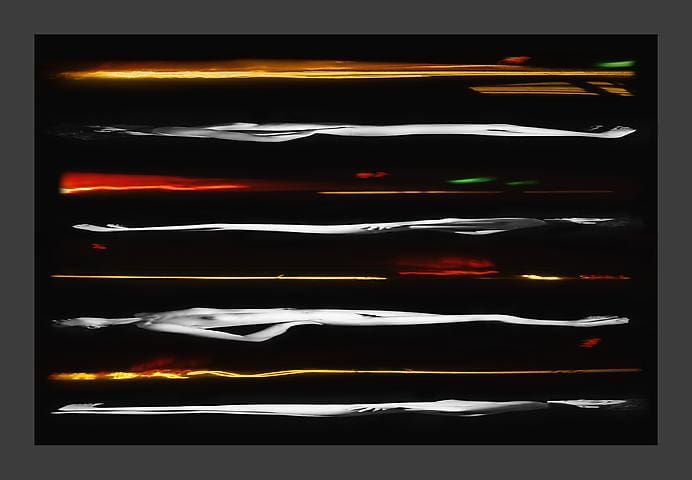A Pillar in the Land of Ruin
Mutual Aid at Willson Tower in Cleveland, Ohio, USA
by Mutual Aid Disaster Relief
15 September 2024 (original post)
When people think of vibrant mutual aid spaces, housing projects at the margins of concrete jungles aren’t usually what first come to mind. However, Willson Tower, one of the most under-served housing projects in Cleveland, Ohio, is exactly that: a lifeline of support and solidarity that has come together as an extended family.
Mutual aid movements were forged in exilic spaces like this, where collective survival has always depended on what the people at the margins and from below create through taking care of each other. In the midst of the daily struggle of living in one of capital’s sacrifice zones, the people of Willson Tower and the surrounding neighborhood have come together time and time again, to create a paradise built in hell and create resilient relationships that help them weather any crisis. People in abandoned communities like these always care for each other in the face of overwhelming odds and deal in hope, following in the footsteps of movement ancestors like the susus, the Black self-help tradition, and the Black Panther Party.
Suncere Ali Shakur, one of the co-founders of Mutual Aid Disaster Relief (MADR), is a resident of Willson Tower and has helped to initiate and grow grassroots, community-led survival programs in Cleveland and beyond, including the Wolfpack Gunshot Response team; the Hali Stone Children’s Free Breakfast Program; and MADR’s Feed the People, Wellness, Supplies Distribution, Animal Survivor, and Invisible Disasters survival programs. With his experiences responding to Hurricane Katrina, Superstorm Sandy, the 2010 earthquake in Ayiti (Haiti), and other disasters, Suncere knows the transformative potential that exists during a crisis. Each pandemic, tornado, power outage, water outage, shooting, winter storm, or other disaster that has hit Willson Tower has just added more fuel to the fire to resurrect the spirit of the Black Panther Party in Cleveland, with thriving free breakfast programs, free laundry, haircuts, Christmas toy giveaways, mask distribution, grocery deliveries, community cookouts, animal rescue and care programs, conflict mediation, clothes distribution, first aid, and more.
First documented in 600 AD by Imam Ali, the saying “Knowledge is power” has been reiterated across cultures and was echoed by the Black Panther Party in their Ten-Point Program. To that end, Suncere has also trained many community members in critically important stop-the-bleed skills, creating a civilian gunshot response team to respond quickly to emergencies in the absence of accessible services (or until they arrive), similar to the Free Ambulance Program organized by the Black Panther Party.
The Black Panthers focused on the importance of education that teaches one’s true history and role in present-day society, resulting in critical knowledge of structures of oppression, leading to self-actualization and the ability to change the material realities of life in Black communities. Thanks to Suncere’s ongoing outreach and community empowerment efforts over years and decades, the lessons of mutual aid and community care were recently reflected back by youth who spontaneously organized community barbecues and respected community members who kept the peace, and by vehicle after vehicle of people from other neighborhoods bringing in water, ice, battery banks, and other essentials in the aftermath of several tornadoes that hit the Cleveland area.
Early in August, neighborhoods across Cleveland were impacted by five EF-1 tornadoes which left 300,000 people without electricity regionally, including residents of the twenty-two-story public housing complex Willson Tower. With sixty-four family units lacking electricity, sewage, and running water, Suncere, his neighbors, community members, and Mutual Aid Disaster Relief showed up for each other in big ways, helping each other survive, and sharing food, water, flashlights, solar chargers, battery banks—and intangible things like emotional first aid and other necessities—until the lights, water, and elevator access were restored. What began as a disaster quickly evolved into a beautiful exercise in solidarity.
Yet even as we celebrate this, we acknowledge that, too often, ignored and invisible disasters still remain in Willson Tower and similar communities throughout America. Regular, daily, consistent survival programs are an integral part to how Willson Tower’s residents survive the invisible disasters of unemployment, extreme poverty, post-incarceration, addiction, generational trauma, and extreme societal marginalization, and these steady efforts are rarely ever shown on the nightly news. Rather than emerging from a vacuum, ongoing community survival programs like these are the ground from which powerful communal disaster responses spring, like the Willson Tower tornado response.
As Fred Hampton is often quoted as saying, “First you have free breakfasts, then you have free medical care, then you have free bus rides, and soon you have FREEDOM!”
If you are able to help, to share, or to amplify and uplift this powerful example of community organizing as disaster preparedness and disaster response as community organizing, Suncere can be reached directly at bigblackafrica2000@yahoo.com and donations can be made to the Mutual Aid Disaster Relief Action Network general fund, or directly to Suncere for ongoing Willson Tower mutual aid activities through PayPal using the email address above.
This unrecognized and critical work happens every day in the shadows and at the margins, stopping the slow bleed out from our communities. This important grassroots work needs a consistent flow of resources to continue caring for the community at large every day, and not just during very visible crisis events.
If you want to learn more about the connections between the freedom movement, the Black power movement, and the mutual aid movement, Suncere has a podcast called The People’s Dinner Party where he interviews longtime activists and revolutionaries while sharing food and drink, and discussing mutual aid, revolutionary ideas, solidarity, and community.
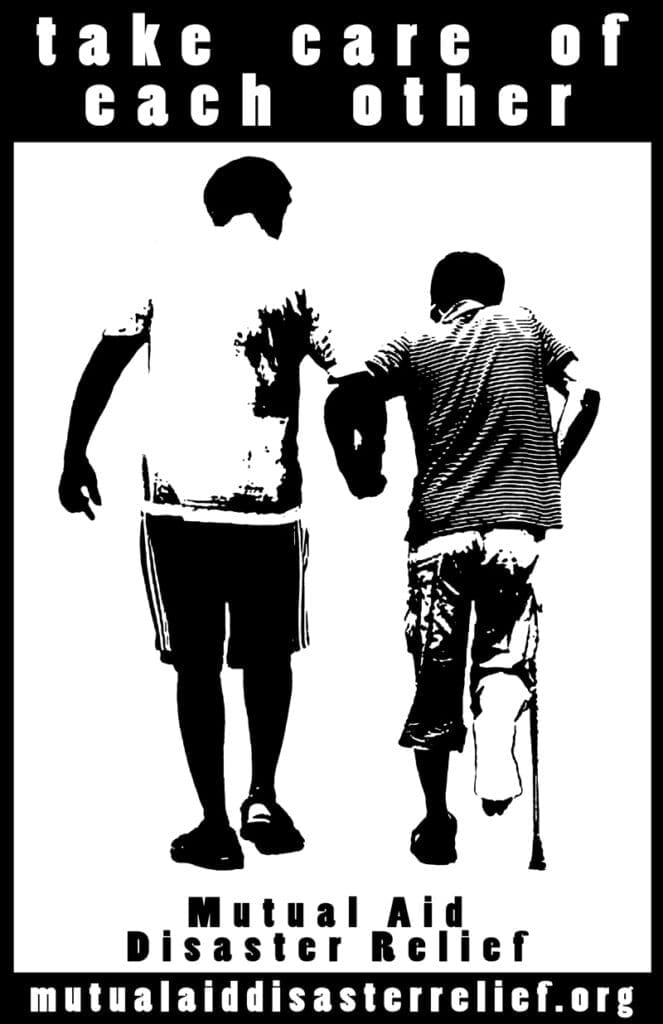
All power to the people.
Sky’s the limit!
Republished with permission. All images via Mutual Aid Disaster Relief

